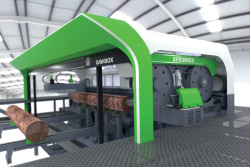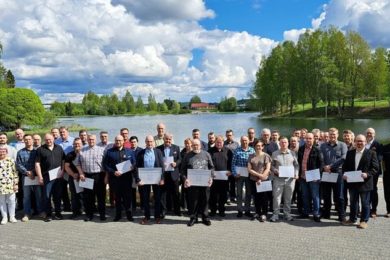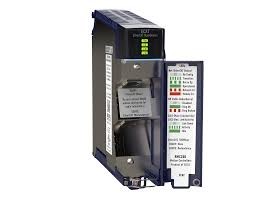Metsä Group has chosen VR Transpoint as the logistics partner for roundwood transports to the bioproduct mill under construction in Kemi. This decision was based on more than two years of strategic cooperation during which an effective and environmentally friendly overall solution was designed for the transports. Annually, five million cubic metres of wood will be transported to the mill by rail, which means that an average of nine trains will arrive at the mill every day.
The number of wood transports by rail will be increasing significantly in Finland from 2023 onwards when the bioproduct mill in Kemi is commissioned. This means annual deliveries of more than five million cubic metres of wood, for which Metsä Group has chosen VR Transpoint as its transport partner. The logistics solution has been fine-tuned in close cooperation already for more than two years.
“The efficiency of transports and smooth flow of traffic are key factors when trying to attract major investments such as a bioproduct mill to our country. Finland is located far from the densely populated markets, so we have to catch up with more efficient logistics. We have now managed to create a solution in which the operations of the mill and railway transports are combined seamlessly,” says Martti Koskinen, Senior Vice President at VR Transpoint.
VR Transpoint is enabling a major investment of the forest industry for the second time: Metsä Group chose VR Transpoint as its partner also for the pulp transports of the Äänekoski bioproduct mill in 2016.
“We appreciate our long-term partnership with VR Transpoint and offer them a further opportunity to grow by supplying wood to the Kemi bioproduct mill. Railway transports play a significant role in the Kemi bioproduct mill’s wood supply, which requires this new, effective operating model,” says Juha Mäntylä, COO, Metsäliitto Cooperative.
Wood is transported from longer distances but with considerably fewer emissions
In the future, wood transport volumes to the new mill in Kemi will be equal to one-third of all VR Transpoint’s wood transports. Due to the increased use of wood, it must be transported from wider areas, from north and south of Kemi, but these transports are done with considerably fewer emissions.
“Sustainability is a crucial part of the strategies of both VR Transpoint and Metsä Group. Although the distance travelled by the wood deliveries increases, emissions are reduced by 20% per cubic metre due to effective railway transports. Together, we are reducing the emissions from traffic and speeding up the journey towards a carbon neutral Finland,” says Martti Koskinen.
In practice, eight to ten trains will arrive at the Kemi bioproduct mill every day. The efficiency of the transport system is based on perfectly fine-tuned wagon rotation: the time between two consecutive loadings, including all the stages, takes only half the time of an average wood transport.
Rolling stock investments enhance delivery reliability
Due to the new contract, VR Transpoint is investing in approximately 200 new roundwood wagons. The bioproduct mill’s railway transports will require a total of more than 400 wagons. The newest electric and diesel locomotives will be used as the tractive stock. The new electric locomotives can handle loads of up to 2,500 tonnes, which means approximately 20–25% more wood per train.
“Investments in modern rolling stock regarding locomotives as well as wagons are part of ensuring delivery reliability and logistics efficiency. It is also important that the traffic infrastructure has been considered from the start of the project and planned together with the Finnish Transport Infrastructure Agency,” says Koskinen.
Photo: VR Transpoint







